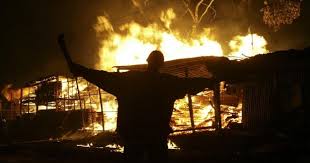At dawn in Mamboleo, the first patient pushes open the gate of Simba Opepo Health Centre. The air is a mixture of disinfectant and dust, and the building…small, weary, but standing, seems to carry the same fatigue as the people who come through its doors. Nurses arrive before the sun has fully risen, their voices soft, their steps quick. They are ready to serve, but they have to improvise every single day. A delivery bed that shakes, a lab that often stalls because there are no reagents, an ambulance that only exists in hope. Here, where health care is meant to be a right, people meet a system that constantly tests their resilience.
Simba Opepo is not an idea, it is not a number in a report…it is where the promise of Article 43 of our Constitution is meant to come alive: the right of every Kenyan to the highest attainable standard of health, and the guarantee that no one should ever be denied emergency care. Yet in Mamboleo, that promise feels far away.
What defines a Level 3 facility? A maternity wing equipped with proper delivery beds. A functional lab. Emergency transport. Essential drugs. Skilled staff. Dignity in care. Yet here at Simba Opepo, those are absent. The delivery bed rattles like scrap metal. The laboratory is more a waiting room than a service. The ambulance is fiction. The pharmacy shelves echo with shortages.
Even in county budget documents, you see it; the quiet betrayal. Simba Opepo is listed under “pit latrine underbudgeted.” A toilet, reduced to a line item that could not even be fully funded. But to the mothers who come here, to the children who wait here, a toilet is not just a structure. It is safety. It is dignity. It is infection control. If a latrine cannot be secured, how then can we trust that labour at midnight will be safe?
The truth is no secret. National human rights assessments have already flagged Simba Opepo for what it lacks: too few delivery beds, no ambulance, broken infrastructure, equipment that should be basic but is missing. And when the equipment is absent, time becomes the most expensive medicine. And patients pay with pain, with disability, sometimes with life itself.
The staff wear courage like a second uniform, but courage cannot substitute for policy. Kenya’s own reports show what we already feel here; shortages of health workers, uneven distribution, peri-urban facilities like ours constantly squeezed. A patient in Mamboleo cannot consult with a ghost. A mother cannot deliver safely on a promise; she needs a bed, a midwife, a stocked pharmacy.
Yet Simba Opepo is also alive with community spirit. This compound has hosted Universal Health Coverage Day marches, World Contraception Day rallies, youth groups and county teams. People gather here to speak of dignity, prevention, and choice. But after the speeches, after the music, the reality waits inside: the fridges go off when power fails, the delivery bed still wobbles, the pit latrine still leaks. Community days cannot replace water, power, staff, equipment.
This is where governance is tested….not in manifestos, but in whether the light stays on when the storm rolls over Kajulu. Not in ribbon cuttings, but in whether Simba Opepo has a working toilet, a stocked pharmacy, a bed that is steady, a nurse who is present.
The path forward is not complicated:
Publish a facility-specific plan with real costs and timelines—let the community see it, track it, own it.
Equip Simba Opepo to standard: delivery beds, maternity kits, a functional lab, and a reliable ambulance or referral transport system.
Staff to need, not to norm. Post health workers here in proportion to patient flow, publish staffing rosters and drug stock levels publicly.
Make rights visible. Mount a poster at reception with Article 43 written clear, alongside a hotline and QR code to report breaches.
Because behind every budget line is a person. A child with a fever who needs a lab test that works. A woman in labour who cannot be bounced from one facility to another at midnight. An elder who should not have to crouch over an underfunded latrine and call that care.
Simba Opepo is the mirror where county leadership must see itself clearly. Right now, the reflection is harsh. But it doesn’t have to stay that way. If leaders want a legacy, let it start here…not with speeches, but with clean water, stocked shelves, working power, and dignity that patients can touch.
So tomorrow, when the first patient walks through Simba Opepo’s gate at dawn, may she not be met with apology. May she be met with a system; quiet, ready, steady, and worthy of the right it was built to serve.






